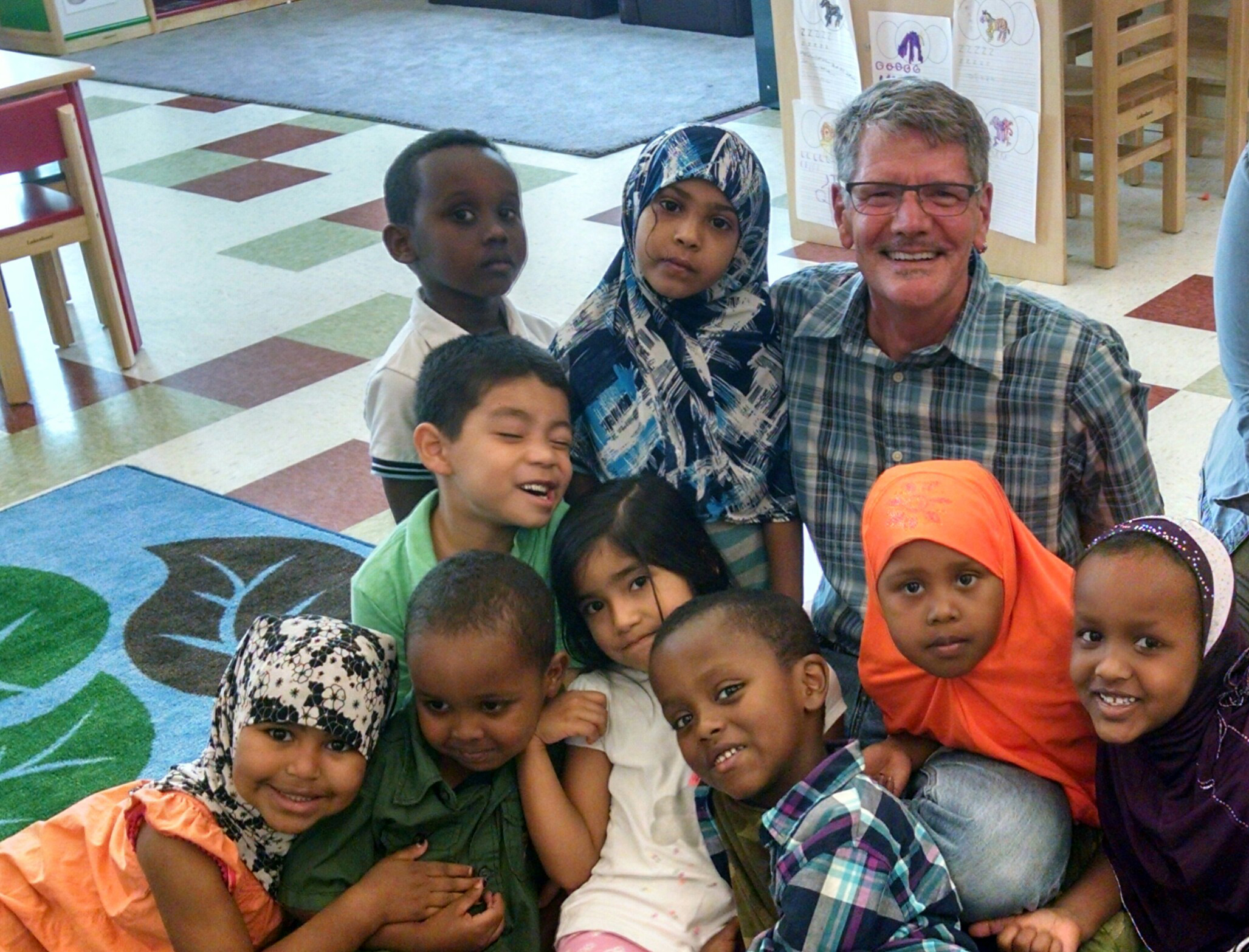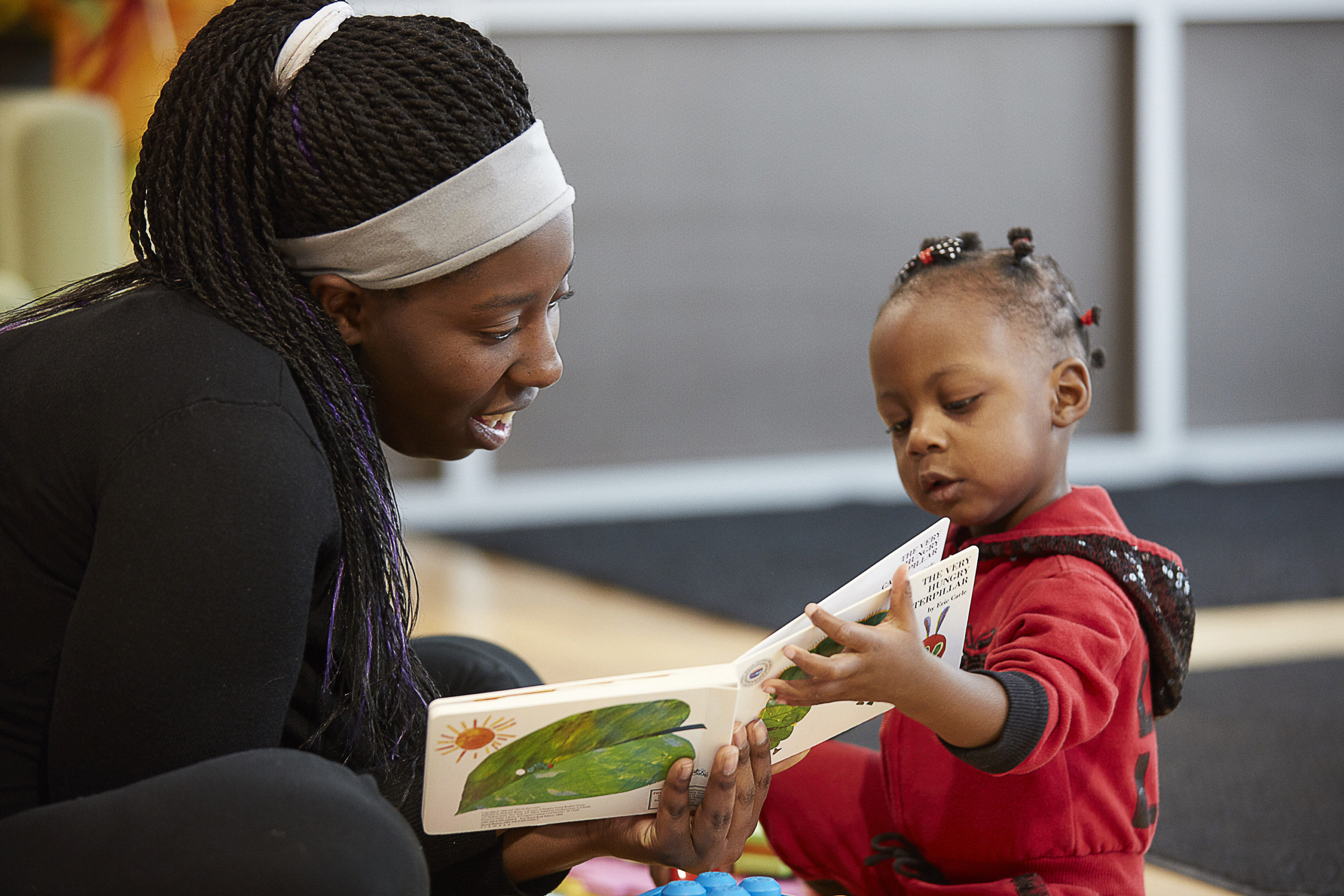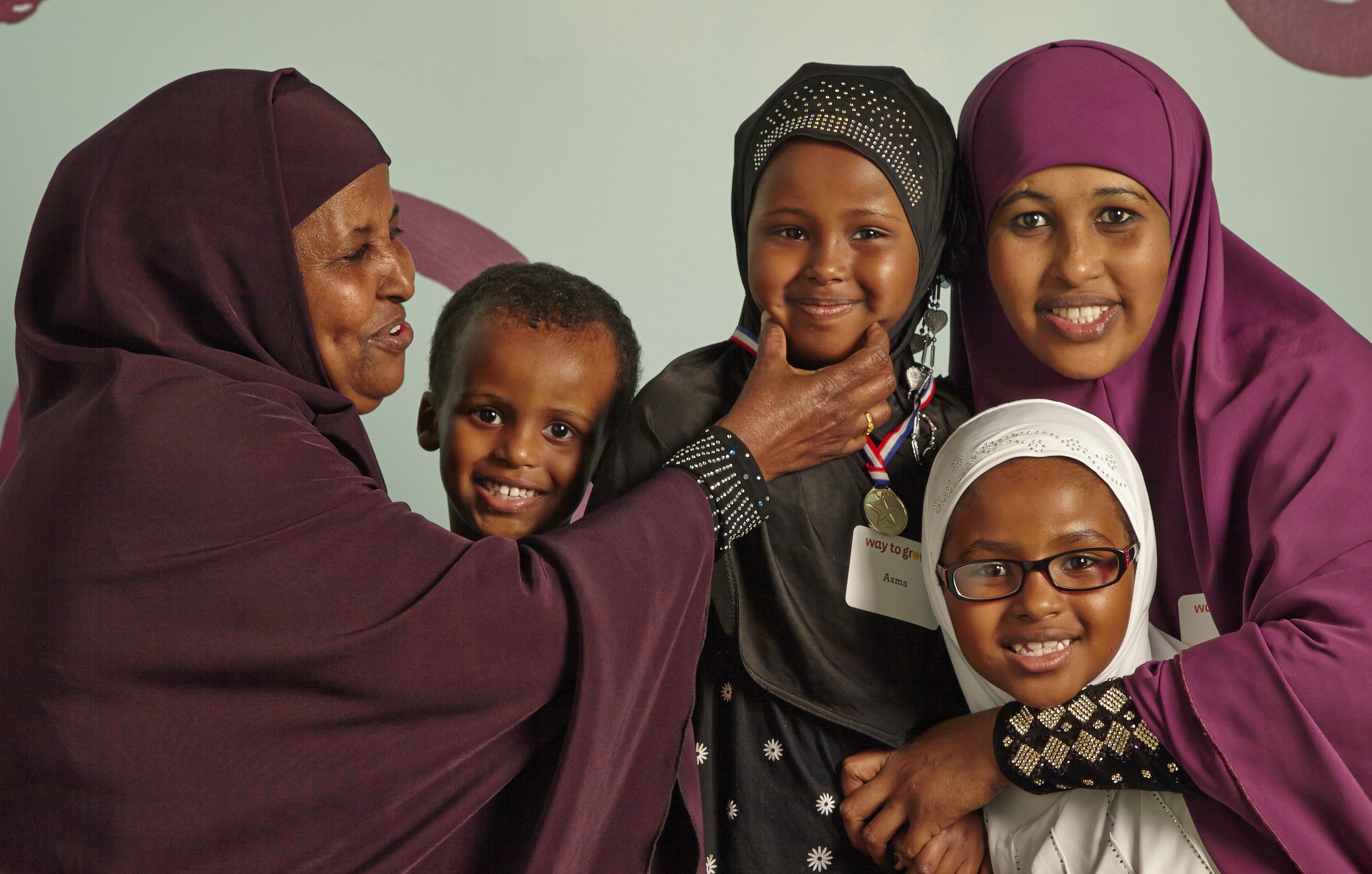Every Wednesday for the past year, 12-15 Way to Grow preschool children cannot wait to see Mr. Barry’s friendly smile when they arrive at school.
Mr. Barry volunteers as a Preschool Literacy Tutor at the Way to Grow Preschool in South Minneapolis. “I love reading to the kids,” he says, “I get to the preschool before class starts, and before you know it” Barry cheerfully explains, “I’ll have several children crowding around me; excited to read, to learn and to enjoy a story!”
To say Mr. Barry has a passion for teaching would be an understatement. “I always wanted to be a teacher,” Mr. Barry goes on. “But, one thing led to another, and I wound up with a successful career in retail; but I never stopped thinking I would have liked to be a teacher.” So, even while working full time, Mr. Barry started his equally successful volunteer career as K-3 tutor at Emerson Public School where he served for over ten years. Though Mr. Barry enjoyed the one-on-one time, this school enjoyed a large number of volunteers. He credits this experience with inspiring him, and looked for more opportunities where he could make an impact.
“That’s when I saw a call to volunteer with Way to Grow in the newspaper,” Mr. Barry says. “I looked into the program and was very drawn to the idea of working with a population of students [where a large percentage are] assimilating to America, while simultaneously learning to navigate the school system. It’s hard not to tie this work to the achievement gaps everyone is talking about in Minneapolis, and, well, you can’t keep complaining that kids are undereducated, if you’re not going to do anything about it!” And so, Mr. Barry did, and has been with our Preschool P.A.L.S. ever since.
“I know that the families at the preschool are getting a head start, and that’s very profound throughout Way to Grow,” Mr. Barry concludes. “I, myself have learned a lot by watching these children and families progress and learn new skills. We are getting these kids ready to be successful and well educated. Seeing these results – let me tell you, I am so proud of how advanced these children are. It is what keeps me involved and inspired.”
Mr. Barry thinks about the impact his involvement may have in the future, “Someday one of these children might be our mayor, a successful CEO, a noted teacher or anything else they can dream of – even representing us in the White House!” And Mr. Barry likes to think he is helping them get there; “Even if just a little bit!”






